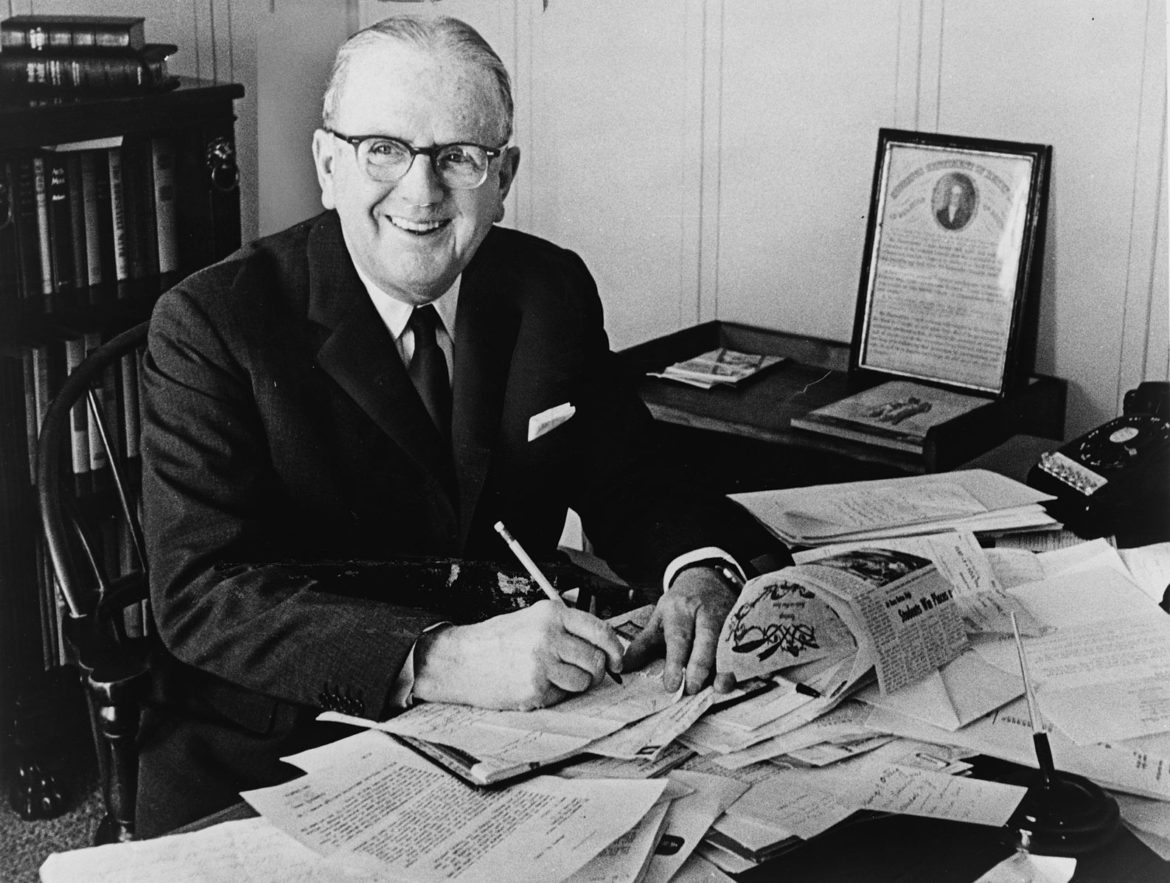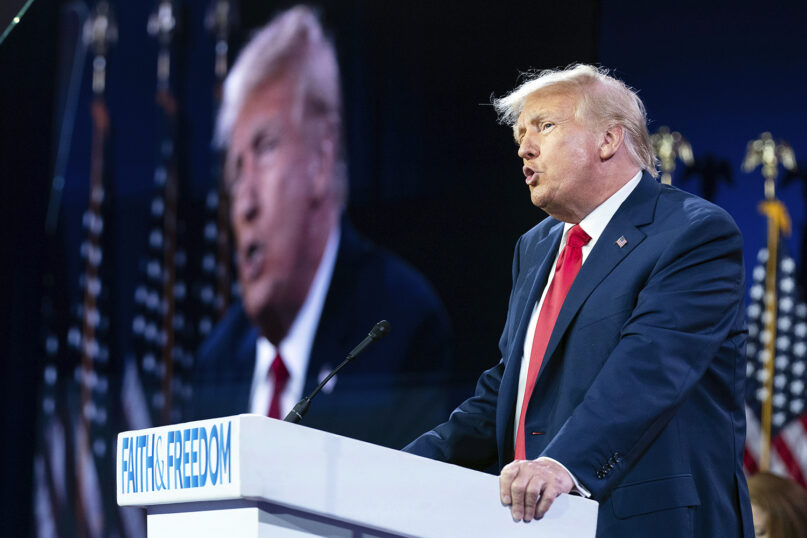(RNS) — The new federal indictment of Donald Trump paints a portrait of the last days of a presidency in which the incumbent, faced with unimpeachable evidence that he has lost his bid for reelection, conspires to thwart the legal transfer of power and stay in office.
The indictment is at pains to point out that Trump was repeatedly told by government and campaign officials as well as by one court after another that claims that the election had been stolen were baseless. It also emphasizes that from time to time he seemed to acknowledge his defeat himself. Yet again and again, he repeated those claims.
As a number of commentators have pointed out, the prosecution will have to persuade a jury that Trump knew full well that he had lost the election. Which brings us to his curious relationship to the truth.
Those with eyes to see and ears to hear would call that relationship estranged. During his presidency alone, according to the count kept by The Washington Post, Trump made no fewer than 30,573 false or misleading claims. That averages out to more than 20 lies a day.
You could be forgiven for thinking that his Christian followers would have a bit of a problem with this. Christianity sets a pretty high value on truth versus lying, as evidenced above all by the Gospel of John.
“I am the way and the truth and the life,“ Jesus tells the disciples. To Jewish believers he says, “If you abide in my word, you are truly my disciples, and you will know the truth, and the truth will set you free.” As for the devil, “When he lies, he speaks his native language, for he is a liar and the father of lies.”
When Jimmy Carter pledged “I will not lie to you,” it was as much an avowal of his Christian faith as it was a way to distinguish himself from his deceitful predecessor, Richard Nixon.
But Trump embraces a different species of gospel — the one purveyed by the celebrity preacher Norman Vincent Peale, whose Manhattan church he attended growing up. “He would give a sermon, Trump recalled at the 2015 Iowa Family Leadership Summit. “You never wanted to leave. … It was unbelievable.”

Norman Vincent Peale, shown in 1966, was a Christian preacher and author, most notably of “The Power of Positive Thinking.” Photo by Roger Higgins/World Telegram/Creative Commons
Peale became most famous for his 1952 bestseller “The Power of Positive Thinking,” which taught that success in life depends on positive attitudes and beliefs. At the Iowa Summit, Trump called it “a great book.”
“What we do with obstacles is directly determined by our mental attitude,” Peale wrote. “Most of our obstacles, as a matter of fact, are mental in character.”
“The mind can overcome any obstacle,” Trump told The New York Times‘ Marylin Bender in 1983. “I never think of the negative.”
Whether Trump’s mind can overcome the latest legal obstacle thrown in his way may be doubted. But who’s to say there won’t be jurors prepared to believe that he really believes in a thing unseen — the stolen election?
Let’s not forget that other verse in the Gospel of John, from the end of Jesus’ interview with the governor of Judea: “Pilate said to him, ‘What is truth?’ After he had said this, he went back outside to the Jews and told them, ‘I find no guilt in him.'”






